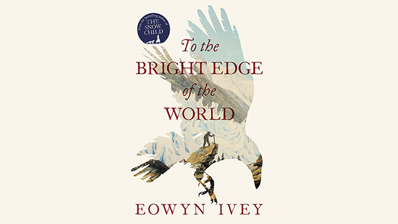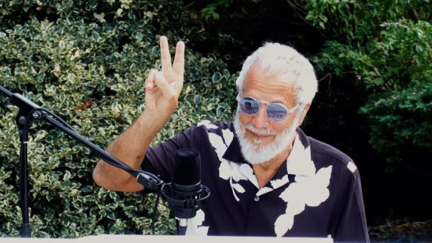Stephanie Jones: Book Review - To The Bright Edge Of The World by Eowyn Ivey
- Publish date
- Thursday, 8 Sep 2016, 2:15PM

The ghosts of Meriwether Lewis and Ernest Shackleton hover at the frame of Eowyn Ivey’s spirited tale of exploration and its cost, To the Bright Edge of the World. In real life, Lewis and William Clark led a successful first crossing of the new western territory for the United States that lost only one member, to a ruptured appendix. In Ivey’s fictional adventure, the formidable task of Lieutenant Colonel Allen Forrester is to lead a team along the Wolverine River of 1885 Alaska, mapping the newly acquired territory to open it up for trade and assessing the attitude to outsiders of the area’s native American tribe. Of the trio that sets out, Forrester will be the only one to make it home.
The novel comprises a series of official records, newspaper clippings, citations from contemporaneous texts, and the journal entries of Forrester and his wife, Sophie, as well as the couple’s letters to one another. Knitting it all together, and providing a modern emotional connection that neatly mirrors that of the Forresters, are the letters between Josh Sloan, a curator of the historical museum in Alpine, Alaska, and Forrester’s only surviving descendant, his great-nephew Walt, who sends these precious papers to the museum in a bid to preserve them.
Sophie and Allen married the year before the expedition, and newly pregnant, she must stay behind in the Vancouver Barracks. Sophie’s fears for her husband’s safety are valid: the last white men to travel into the Alaskan interior, almost a century before, were the Russians from whom the United States government purchased the territory, and they are rumoured to have succumbed to “the ferocity of the cannibalistic nature” of the Midnooskie Indians on the Wolverine.
Though a number of years younger than her husband, Sophie is his match in courage and fortitude, and she will wage her own battle for survival, occupying her time by with education that will eventually earn her national celebration as a photographer of the natural world.
Accompanying Forrester are Lieutenant Andrew Pruitt and Sergeant Bradley Tillman, and as Ivey establishes her story, vividly describing the environment and enumerating the menaces and hurdles which lie before them, we surmise that survival will depend as much on luck as skill and good sense. Forrester commands the unwavering respect of his men, as a Medal of Honour recipient for his stand against a band of Apaches in 1868, but disaster beckons on every step through the forbidding landscape. When the men lose a sled on an ill-judged river crossing, the lion’s share of their food goes with it, and as their trip progresses, the spectre of starvation hovers.
Endurance depends partly on the goodwill of the Midnooskies, who are not the primitive bogeymen of lore but a well-structured society that has much more to fear from the interlopers than vice versa. As a letter from the curator reveals, within 20 years of the expedition the mining companies and fur traders moved into the Wolverine Valley, precipitating the capitulation of the tribespeople to influenza, tuberculosis, and alcoholism.
Forrester’s soundness of mind is tested in myriad ways, and the contemporary letters note the discrepancies between the candour of his journals and the buttoned-up sobriety of his official reports. Walt speculates that “the Colonel was too proud to admit he had witnessed such bizarre occurrences” such as the discovery of a newborn baby whose umbilical cord was still attached . . . to a tree. Meanwhile, Sophie’s unstable pregnancy is being treated with bedrest and lashings of opium.
Ivey is an intrepid and powerfully imaginative writer and To the Bright Edge of the World a singular, thoroughly immersive adventure story. The reader feels Forrester’s every arduous step, every heart-sink and leap of hope. And as Alaska claims her dues in the bodies of men and the first American maps are drawn, the curator maps the history: “The explorers are witnesses to the before. The Colonel’s diaries, like the writing of Meriwether Lewis and Captain Cook, are a kind of cursed treasure.”
Take your Radio, Podcasts and Music with you




